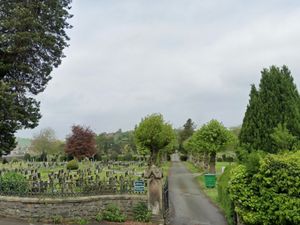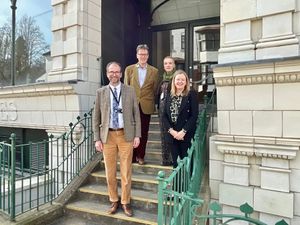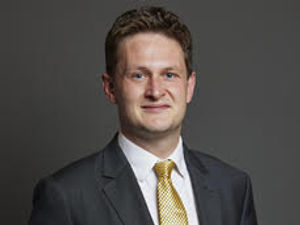MP Owen Paterson calls for guarantee on Ulster troops
North Shropshire MP Owen Paterson has called on the Government to guarantee that soldiers previously exonerated of wrongdoing during the Troubles in Northern Ireland will not face fresh proceedings without clear new evidence.
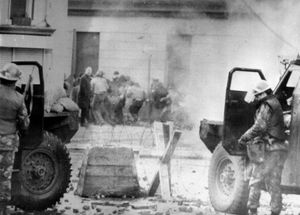
Mr Paterson, a former Northern Ireland secretary, said troops who has served in the province in the 1970s and 80s were being dragged into a political campaign.
He was speaking during a debate to discuss a petition tabled by Karen Webb-James, which had attracted more than 146,000 signatures, urging the Government not to prosecute the military for its work in Northern Ireland, and to prevent criminal investigations after a period of time.
Mr Paterson said there was no need for a change to the law, but said the Government must honour guarantees that had been made to troops in the past.
He said he had spoken with an elderly former soldier who had recently been arrested, despite having letters telling him he would face no action.
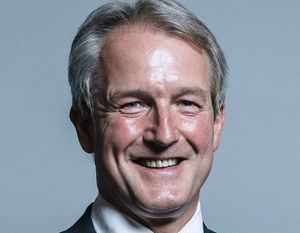
Mr Paterson said: "He had several pieces of paper from military legal departments exonerating him for an incident, yet a rural police force, which I would have thought had better things to do, sent half a dozen police cars around to arrest him.
"That shows that this has got completely out of hand. There is a real sense of grievance and injustice. Bluntly, the Government have to wake up to this and put it right."
Mr Paterson said that only this month he had spoken to a senior army officer during a visit to Northern Ireland.
"He was emphatic that he did not want any amnesty, because what he and his men did was defend the rule of law," he said.
Mr Paterson praised the Belfast agreement which brought about an end to nearly 30 years of bloodshed in Northern Ireland.
But he said: "It would never have begun without all those brave servicemen, policemen and members of the security services who maintained the rule of law. It is very much thanks to them that Northern Ireland is in such a better position now."
Mr Paterson said the governments of Tony Blair and John Major in the 1990s had to take 'some hideously difficult decisions' to bring peace to the province.
Worthwhile
"We know about the infamous letters, but releasing prisoners only two years on from their conviction, after due process, of the most appalling crimes was an incredibly difficult decision," he said.
"At the time, that was much bigger for many people than the issue of letters, but it has been worthwhile, and we should thank all those who gave it their best."
Mr Paterson said the debate about the future of Northern Ireland continued, but said that former troops should not be dragged into that argument.
"We have to be careful that innocent old soldiers do not get drawn into the current political process," he said. "That is what is happening."
Mr Paterson said the Saville report into "Bloody Sunday" in January 1972, when troops shot 28 unarmed protesters in Londonderry, showed how the Government was committed to getting to the facts.
He aid many of the actions that took place on that day related to split-second moments.
"People could not remember them a week later, so how on earth are they going to remember clearly new facts?" he said.
"Politicians at the time sent these young soldiers to do their duty – to defend the rule of law. Those soldiers were not told, 'Sorry, guys, but in 30 or 40 years’ time you’re going to have a different regime because, bluntly, you will be drawn into a contemporary political campaign.' That is what is happening."
Mr Paterson said there was no need for statements in parliament or new legislation.
"We need an absolute, categorical guarantee from the Government that those who have legally valid pieces of paper exonerating them for incidents in the past will not be subject to a further process unless there is absolutely clear new evidence," he said.
"Secondly, allied to that, there must not be any process in which a fair trial is not allowed. That is a very long-standing principle. I am not a lawyer, but there has to be clear, absolutely categorical new evidence, and an absolute assurance from the prosecuting authorities that the trial will be fair. "


